But first, how exactly does collagen work in our skin?
Collagen is a protein, a structural protein at that. This means that it is important for maintaining structure and integrity of our skin. Collagen resides in the inner layer of our skin, helping to keep its shape.
Our bodies produce collagen, but as we age our bodies naturally begin to produce less and less collagen. This could be a problem, but luckily supplementing collagen can help. Decreased collagen in the skin is associated with the physical changes we often see when aging. Wrinkles, loss of skin firmness and dryness are all things that occur in our skin as our natural collagen production decreases.
Although aging is a natural process that we all go through, collagen supplements – and particularly collagen powders – can help to mitigate and slow this process. Studies have found that taking collagen orally has short-term and long-term benefits. Collagen helps with aging skin and in particular skin elasticity and hydration. It can also help with wound healing and various skin barrier diseases.
Now that we know how collagen works in our skin, let’s jump into it! Our steps on how to transform your skin using collagen powders.
Step 1: Identify the issue
The benefits of collagen for skin are always talked about, but exactly what can collagen actually do for your skin? Collagen can help with lots of different aspects of skin health and appearance. This includes wrinkles, acne, eczema, dry skin and even cellulite.
Let’s start with the common one – wrinkles and fine lines. Wrinkles and fine lines occur as part of the aging process. As we age, the elasticity of our skin decreases due to a variety of factors including decreased collagen production. Elasticity is our skin’s ability to “bounce back”, or our skin’s firmness and plumpness. A study looked at supplementing collagen on skin elasticity and wrinkles. After 12 weeks, the collagen helped to improve skin elasticity and wrinkling.
Collagen can also help with acne. Yes, you heard us, acne. While collagen supplements are often raved about for things like wrinkles, collagen can do more that help with that. Collagen plays an important role in wound healing and scarring. The body will use collagen to help close the wound (in this case acne) and form new skin. Similarly, this can also apply to eczema because the body treats eczema similar to how it would a wound.
Dry skin? Collagen may be the answer for you. A study looked at the effects of supplementing collagen in women over the age of 35 years. The researchers looked at their skin, including the hydration of their skin. They found that having at least 2.5 grams of collagen peptides per day significantly improved skin hydration levels after 12 weeks.
Collagen also has the potential to help with cellulite. Cellulite occurs for a variety of reasons, one being changes in the layers of the skin and in particular the loss of firmness. As we know, collagen helps with the firmness and structure of our skin. A double-blind placebo-controlled trial investigated the effect of collagen supplements in women with moderate cellulite. After 6 months, the researchers were able to conclude that taking at least 2.5 grams of collagen per day improved cellulite in women with moderate cellulite.
Collagen is a superstar when it comes to skin health and appearance, but it is important to make sure that collagen can help with the skin issue that you are having. If the answer is yes, collagen will help, then it is time to move onto the next step!
Step 2: Choose a product
This step can be overwhelming. With the number of collagen products out there, it can be impossible to decide. We are here to help you choose the right product to transform your skin.
Firstly, you want to look at the source and/or type of collagen. Type I collagen is what is primarily found in the skin, so you’ll likely want to go that route. Type I collagen is sourced from marine sources. Here at Sproos, our Marine Collagen is sourced from small, white fish from the North Atlantic. We try to ensure that our practise is as sustainable as possible, using the fish skins and scales that would otherwise be discarded.
Tip: Be on the lookout for where your collagen products are sourced from. Ideally the product is as sustainable and ethical as possible. These practises will likely harvest higher quality collagen products.
Next, the molecular weight of the collagen peptides being used in the collagen powder should be considered. Why is this important? Well, collagen is a large protein. This makes it difficult for our bodies to break it down and digest it. Because of this, collagen products will often contain collagen peptides. Collagen peptides are smaller, broken-down pieces of collagen. These are easier for our bodies to digest and thus reap the benefits of the protein. The collagen peptides should be around 300 kilodaltons or smaller to ensure optimal absorption and benefits!
Step 3: Incorporate collagen into your daily routine
Ahh the fun part! Consider adding a scoop of our collagen powders to your morning coffee. Our Marine Collagen is unflavoured, making it the perfect candidate to add to coffee. Alternatively, if you like a light and refreshing beverage, you may want to try out our beauty elixir. It is a simple recipe using our Beauty Collagen (with marine collagen), coconut water and fresh citrus fruits.
Another great way to add collagen to your diet is through smoothies, oatmeal or yogurt. Simply add a scoop of collagen and blend or add it to your breakfast bowl of oats or yogurt. The possibilities are endless, and it really comes down to your life and how collagen fits into it.
If you are looking for more recipes, check out the recipes tab of our blog linked here. There are recipes for everyone!
And now for a question we get often: when should I be taking collagen?
The answer to this is pretty simple. Whenever works for you and your lifestyle! Whether that means adding a scoop of collagen to your morning cup of coffee, post-workout smoothie or a bowl of soup during dinner, it really is up to you. The important part when it comes to collagen is consistency. This means taking collagen every day. Taking collagen every day may be daunting, but once you establish a routine, your body and skin will thank you!
Summary
To summarize, we’ve outlined three steps below that you can follow to transform your skin using collagen powders.- Identify the issue – make sure whatever skin issue you are targeting, that collagen can help with it!
- Choose a product – look for things like sourcing, type of collagen, size of collagen peptides and more!
- Incorporate collagen into your daily routine – consistency is key when it comes to collagen powders, so make sure you work collagen into your everyday life!
Glowing skin, here we come!
Sources
- Bolke, L., Schlippe, G., Gerß, J., & Voss, W. (2019). A Collagen Supplement Improves Skin Hydration, Elasticity, Roughness, and Density: Results of a Randomized, Placebo-Controlled, Blind Study. Nutrients, 11(10), 2494.
- Kim, D.-U., Chung, H.-C., Choi, J., Sakai, Y., & Lee, B.-Y. (2018). Oral Intake of Low-Molecular-Weight Collagen Peptide Improves Hydration, Elasticity, and Wrinkling in Human Skin: A Randomized, Double-Blind, Placebo-Controlled Study. Nutrients, 10(7), 826.
- Oral Collagen Supplementation: A Systematic Review of Dermatological Applications. (n.d.). JDDonline - Journal of Drugs in Dermatology.
- Schunck, M., Zague, V., Oesser, S., & Proksch, E. (2015). Dietary Supplementation with Specific Collagen Peptides Has a Body Mass Index-Dependent Beneficial Effect on Cellulite Morphology. Journal of Medicinal Food, 18(12), 1340–1348.
Allison Gonzalez
Sproos Marketing Specialist
Allison recently graduated with a Masters of Science in Human Health and Nutritional Sciences from the University of Guelph. She is passionate about all things health and wellness, and enjoys teaching others about impact that food and nutrition have on day to day life. In her free time she loves going on long runs, grabbing coffee with friends and spending time on the beach (when it isn't freezing outside!).

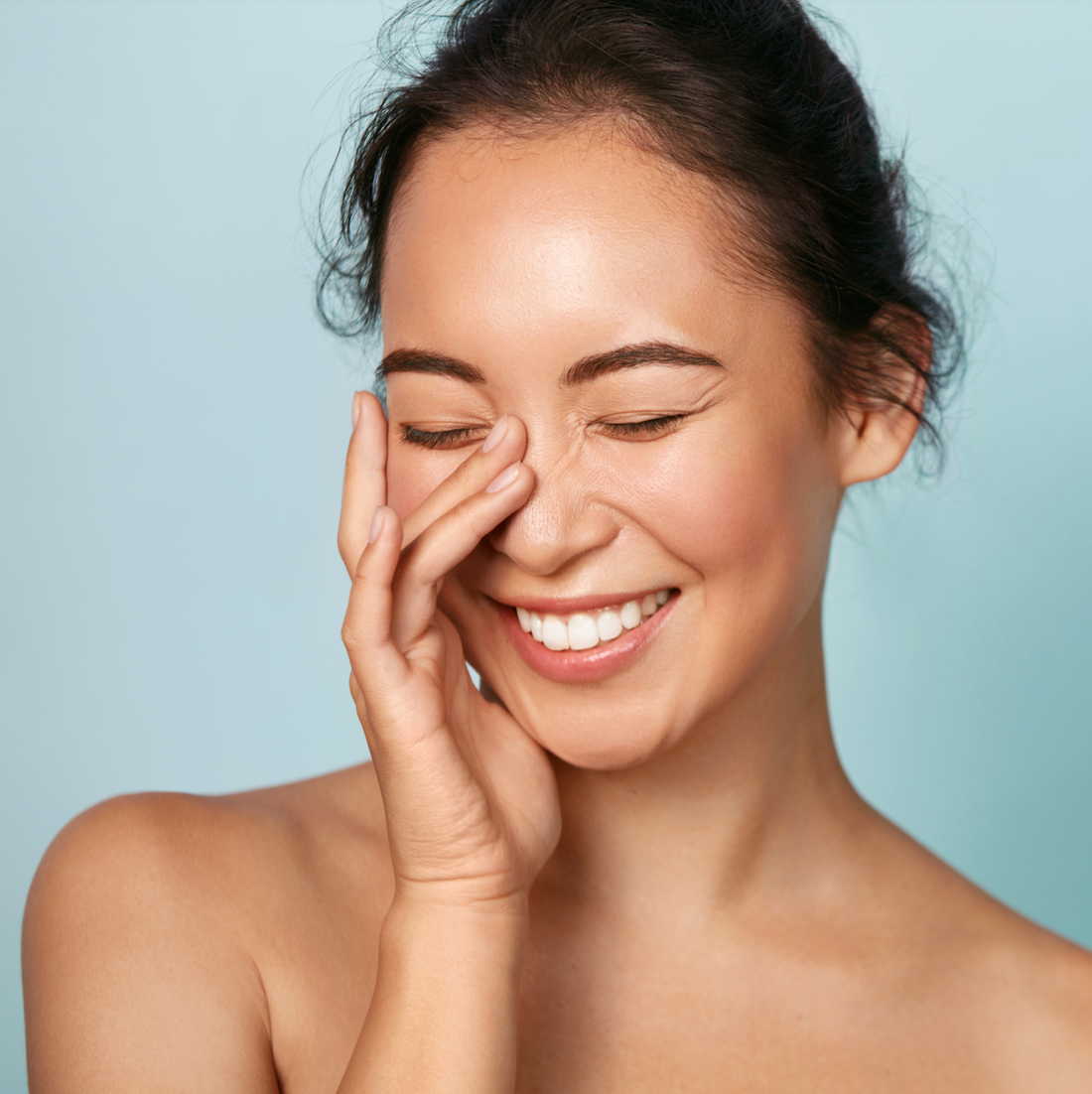
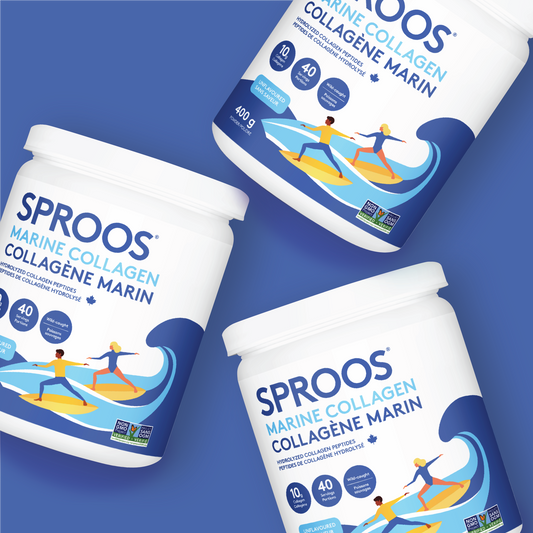
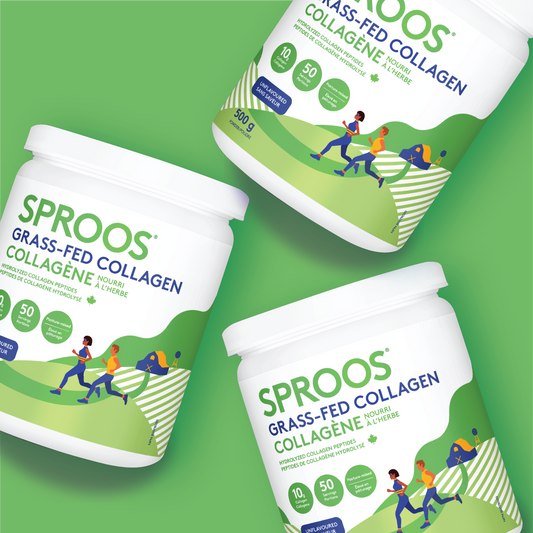
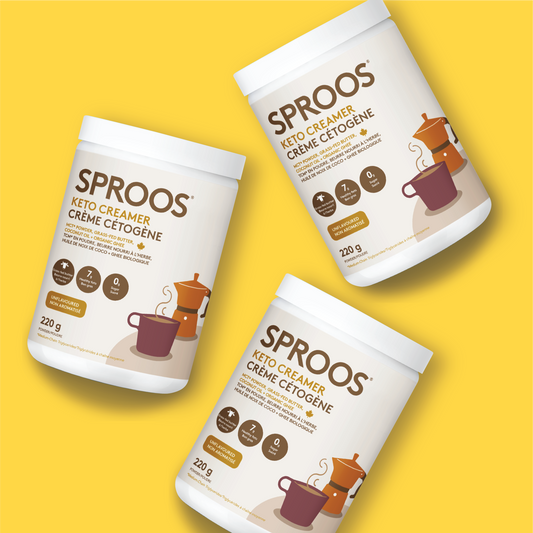
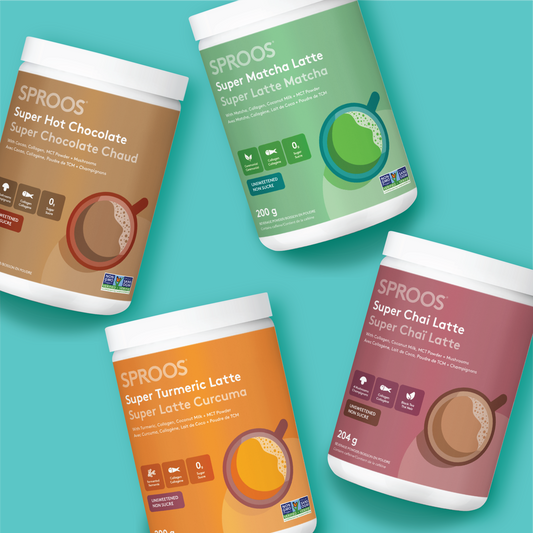
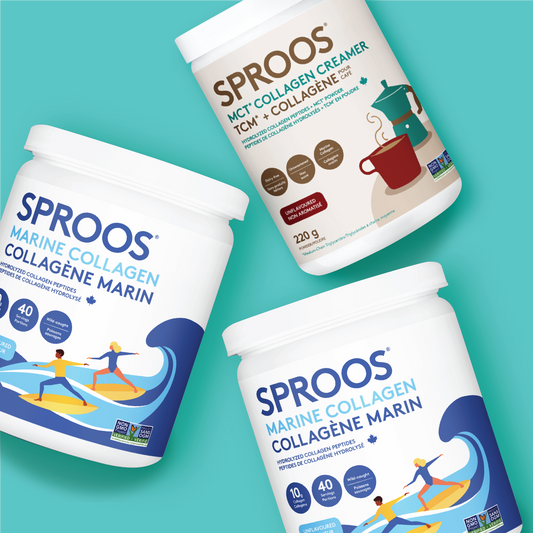
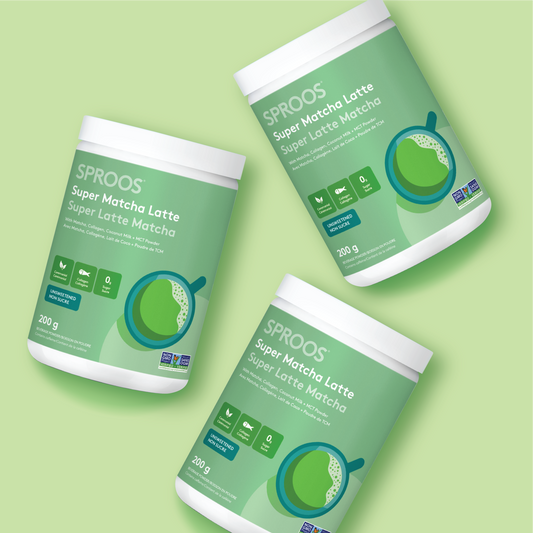
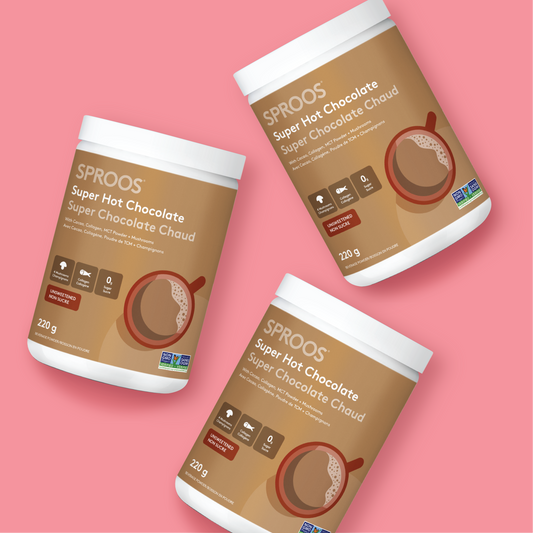
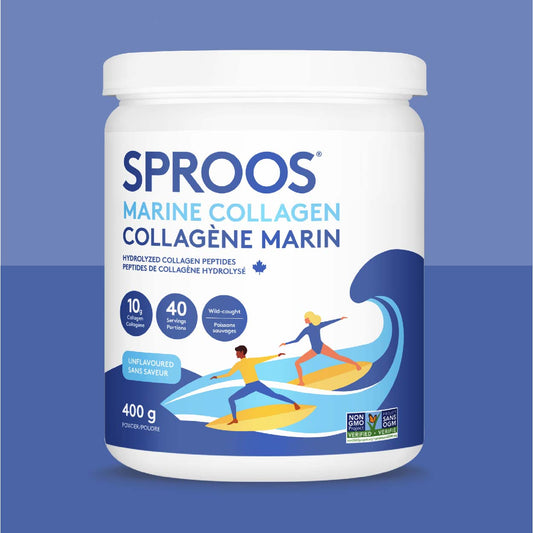
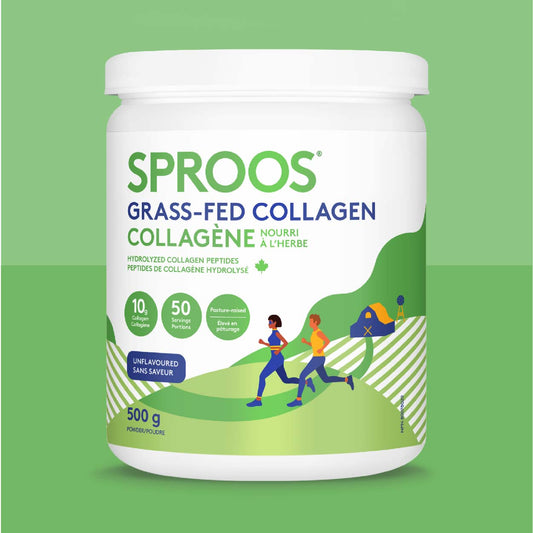
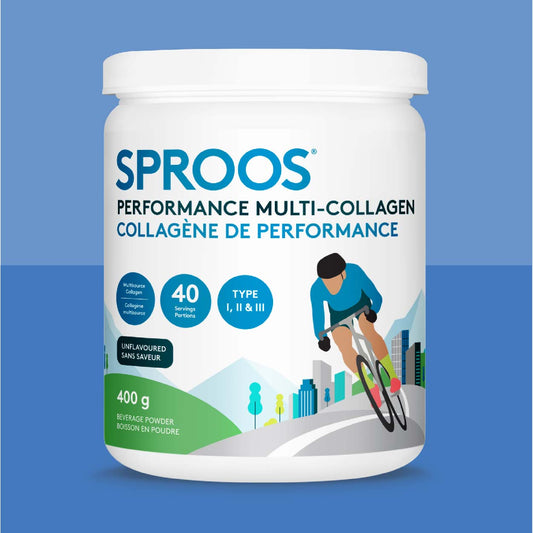
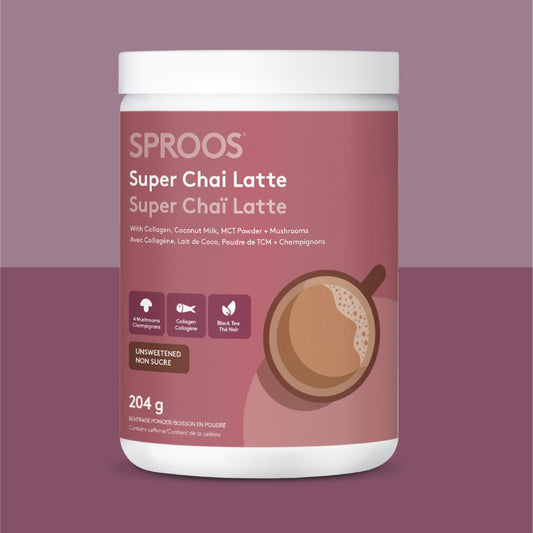
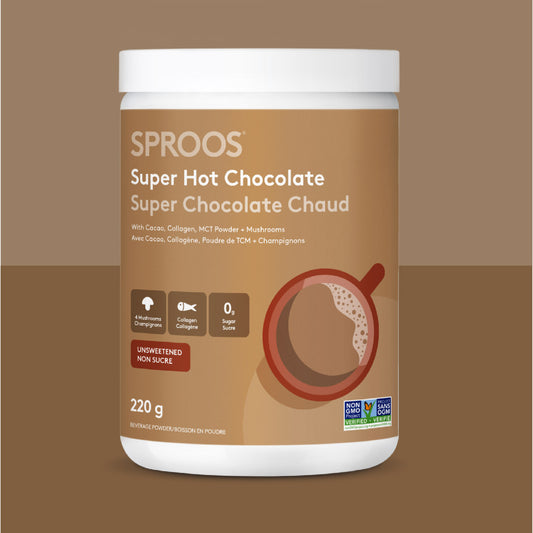
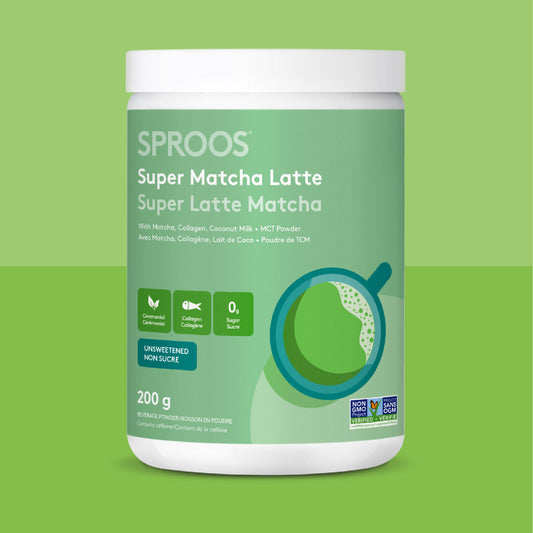
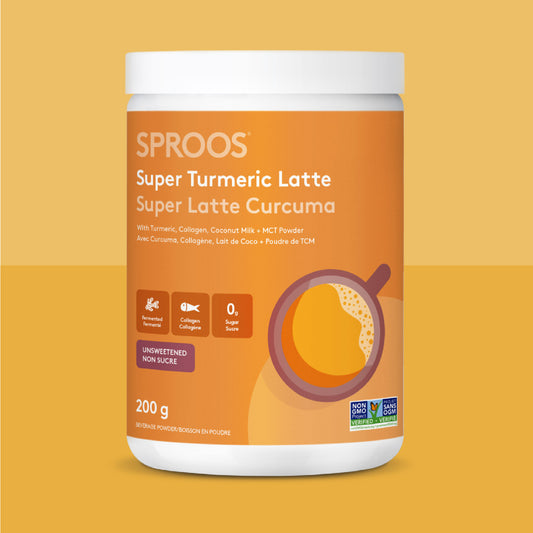
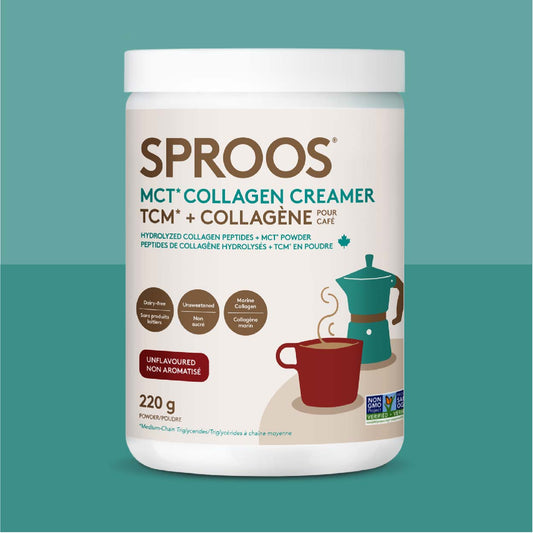
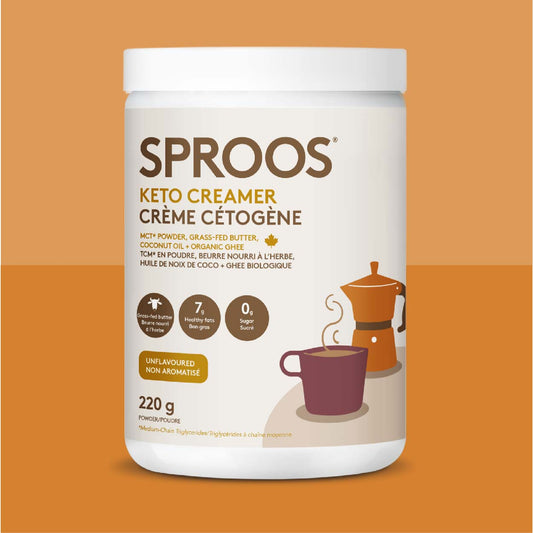
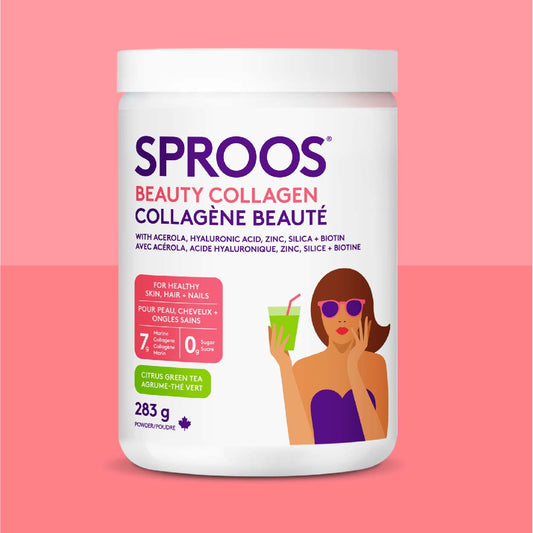
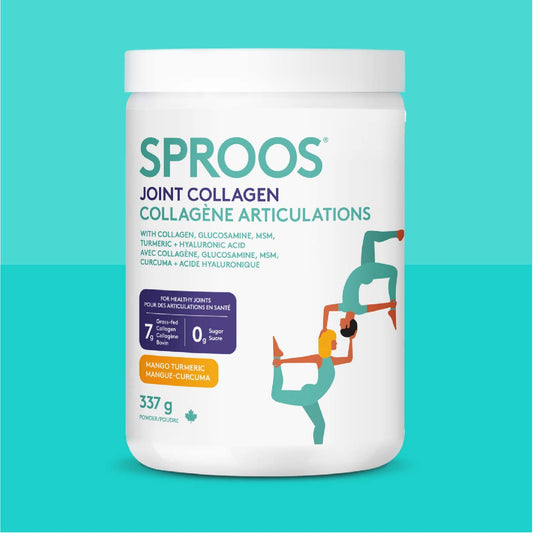
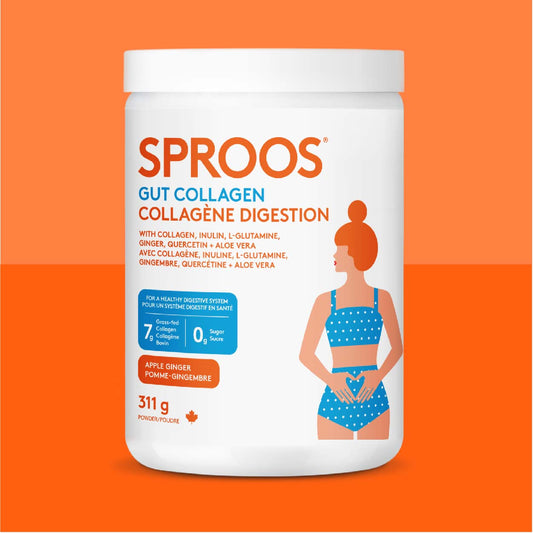
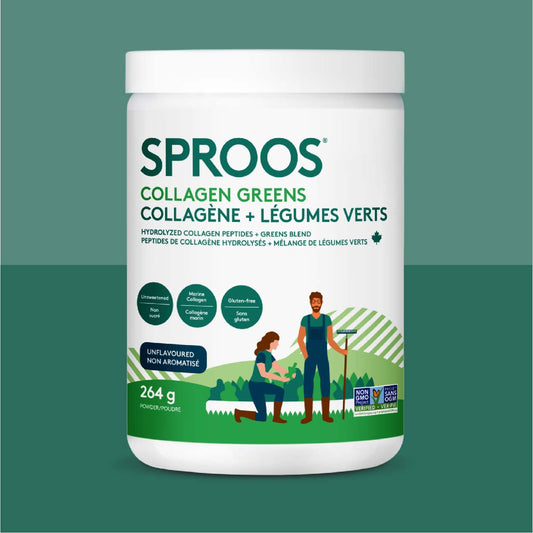
4 comments
Enjoyed reading the article above, actually explains everything in detail, the article is extremely interesting and effective like: https://cnsmedspa.com
Thank you and good luck in the articles.
Bonjour j’ai acheté du collagène en poudre pour le visage 12 petites bouteilles mais je ne sais pas si il faut le mettre nature ou mettre un peu d’eau dedans pour après le mettre sur le visage aucune explication un peu compliqué
Bonjour j’ai acheté du collagène en poudre pour le visage 12 petites bouteilles mais je ne sais pas si il faut le mettre nature ou mettre un peu d’eau dedans pour après le mettre sur le visage aucune explication un peu compliqué
I am 75 with extremely sensitive skin. I bruise faster than peach, and lately if I banged into anything my skin is peeling like an Orange. Blood and having to cut the skin fold no fun. Hope this product works to hydrate and thicken my skin